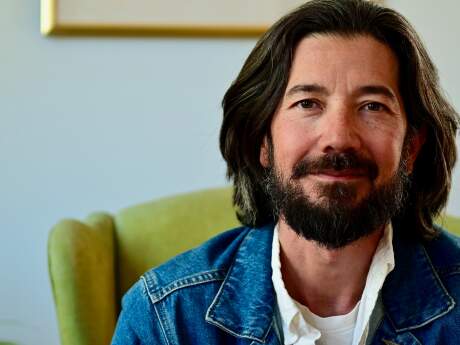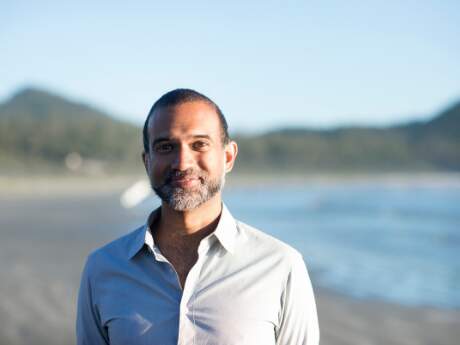Stopping By
Stopping by with Helen Molesworth
Helen Molesworth is a writer, podcaster, and curator based in Los Angeles and Provincetown. In 2023 Phaidon published Open Questions: Thirty Years of Writing About Art, an anthology of her essays. Her podcasts include Death of an Artist, a 6-part podcast about the intertwined fates of Carl Andre and Ana Mendieta, and the inaugural season of Recording Artists with The Getty. She is also the host of DIALOGUES, a podcast that features interviews with artists, writers, fashion designers, and filmmakers hosted by the David Zwirner Gallery. Her major museum exhibitions include: One Day at a Time: Manny Farber and Termite Art; Leap Before You Look: Black Mountain College1933–1957; Dance/Draw; This Will Have Been: Art, Love & Politics in the 1980s; Part Object Part Sculpture; and Work Ethic. She has organized one-person exhibitions of Ruth Asawa, Moyra Davey, Noah Davis, Louise Lawler, Steve Locke, Anna Maria Maiolino, Josiah McElheny, Kerry James Marshall, Catherine Opie, Amy Sillman, and Luc Tuymans. She is the author of numerous catalog essays, and her writing has appeared in Artforum, Art Journal, Documents, and October. The recipient of the 2011 Bard Center for Curatorial Studies Award for Curatorial Excellence, in 2021 she received a Guggenheim Fellowship, and in 2022 she was awarded The Clark Art Writing Prize.
What is the last thing you read that moved you?
I read Once There Were Wolves this summer and Charlotte McConagny had me in her hands with every sentence. Her sense of the emotional and affective entanglements between humans and the natural world we pretend we are not a part of was deeply moving, so much so that it shifted my relationship to the sound of coyotes outside my window at night.
What is a poem that changed or greatly influenced your life?
I’ve recently started living nearly full-time in Provincetown, the old stomping grounds of Mary Oliver. I suspect in “serious” circles, her work is somehow not considered serious “enough.” Too straightforward? Too plain spoken? Nary a sliver of the avant-garde in sight? And yet, I’m increasingly losing my need to be good. I’m more interested in whether or not I can indeed let the soft belly of my animal want what it wants. And I'm humbled that no matter how lonely the world conspires to make me feel, I am, in truth, never alone. I am always one, among the many, of the earth’s small marvels.
What is your first memory of poetry?
It will sound apocryphal, in the way the childhoods of those with academic parents often sound. My father taught me to read using Lord Byron’s “Childe Harold’s Pilgrimage: A Romaunt”: “There is a pleasure in the pathless woods, / There is a rapture on the lonely shore,…”
What do you see as the role of art in public life at this moment in time?
I suspect the role of art in public life has remained remarkably consistent over time. A recent trip to Pompeii taught me that humans don't change that much. I think the primary role of art in public life is to carry our greatest contradictions, our deepest feelings, and our most cutting truths in an attempt to navigate, preserve, and honor them.
How do poems help you make sense of your daily life and the world around you?
Poetry always helps to remind me that there are no feelings without language and that our language is in a near-constant evolutionary state in its attempts to give voice to the ineffable and the unsayable.
What do you want people to take away from your work?
Permission to slow down in front of an artwork. Permission to let yourself think everything you are able in front of an artwork. Permission to change what you think over time. Permission to be free of liking or critiquing in favor of understanding.
Are you working on anything right now that you can tell us about?
I’m working on something (a book, an essay, a diary?) called The Shell Collector’s Wife.


